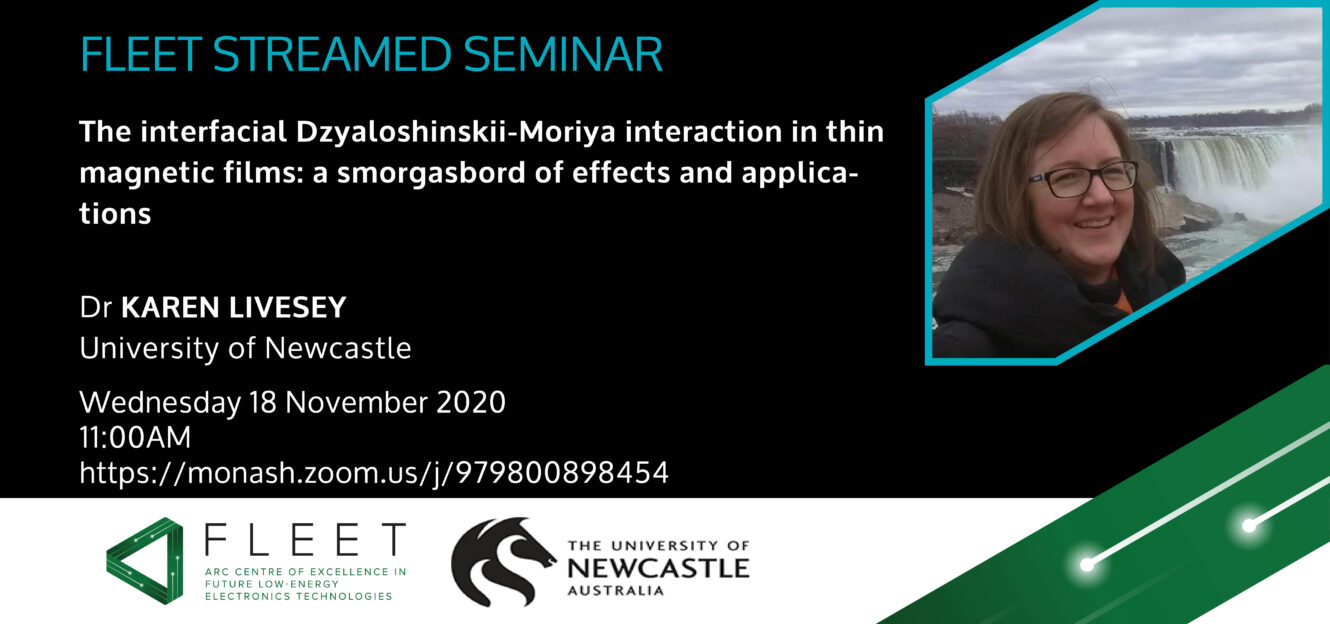-
18 Nov 2020
11:00 am - 12:00 pm
Download flyer here..
Watch the seminar here.
The interfacial Dzyaloshinskii-Moriya interaction in thin magnetic films: a smorgasbord of effects and applications
Dr Karen Livesey, The University of Newcastle
Abstract: The Dzyaloshinskii-Moriya interaction (DMI) is an antisymmetric magnetic exchange interaction arising from spin-orbit coupling, discovered in the 1950s in order to understand bulk materials. In the past decade, there has been an explosion of interest in DMI due to the discovery that it can be made much stronger in thin-film materials where inversion-symmetry is broken due to the presence of an interface. One implication is that magnetic domain walls can be moved using far less energy than previously demonstrated, using electronic or pure-spin currents, for information storage and data processing applications. Another result is the formation of tiny, magnetic, topological skyrmions, which are proposed for low-energy and dense information storage. The asymmetric nature of DMI also means that signals propagate non-reciprocally, paving the way for new filters and isolators that operate in the microwave and far-infrared frequency range.
In this talk, I will discuss the history of DMI and its latest consequences in thin magnetic films and nano-ribbons. I will detail several of my group’s calculations in this area, including an analytic calculation for magnetic domain wall shapes with DMI, double-time Green’s function methods for finding the finite temperature behaviour of thin films with DMI, and a semi-analytic calculation for the spin-wave modes in a magnetic vortex with DMI.
About the speaker: Karen Livesey (Senior Lecturer, University of Newcastle) is a theoretical condensed matter physicist working on magnetic nanomaterials, including thin films and nanoparticles. She completed a PhD at the University of Western Australia in 2010 working with Robert Stamps and Mikhail Kostylev, before becoming an Assistant Professor of Physics at the University of Colorado at Colorado Springs in 2012 and being promoted to Associate Professor in 2018. She was an Emmy Noether Fellow of the Perimeter Institute for Physics in 2018-19. Her research is funded by the US National Science Foundation and the UK Royal Society. Karen relocated to Newcastle in 2020 during a global pandemic.
This talk is co-presented by the University of Newcastle School of Mathematical and Physical Sciences and FLEET (the ARC Centre of Excellence in Future Low-Energy Electronics Technologies).

